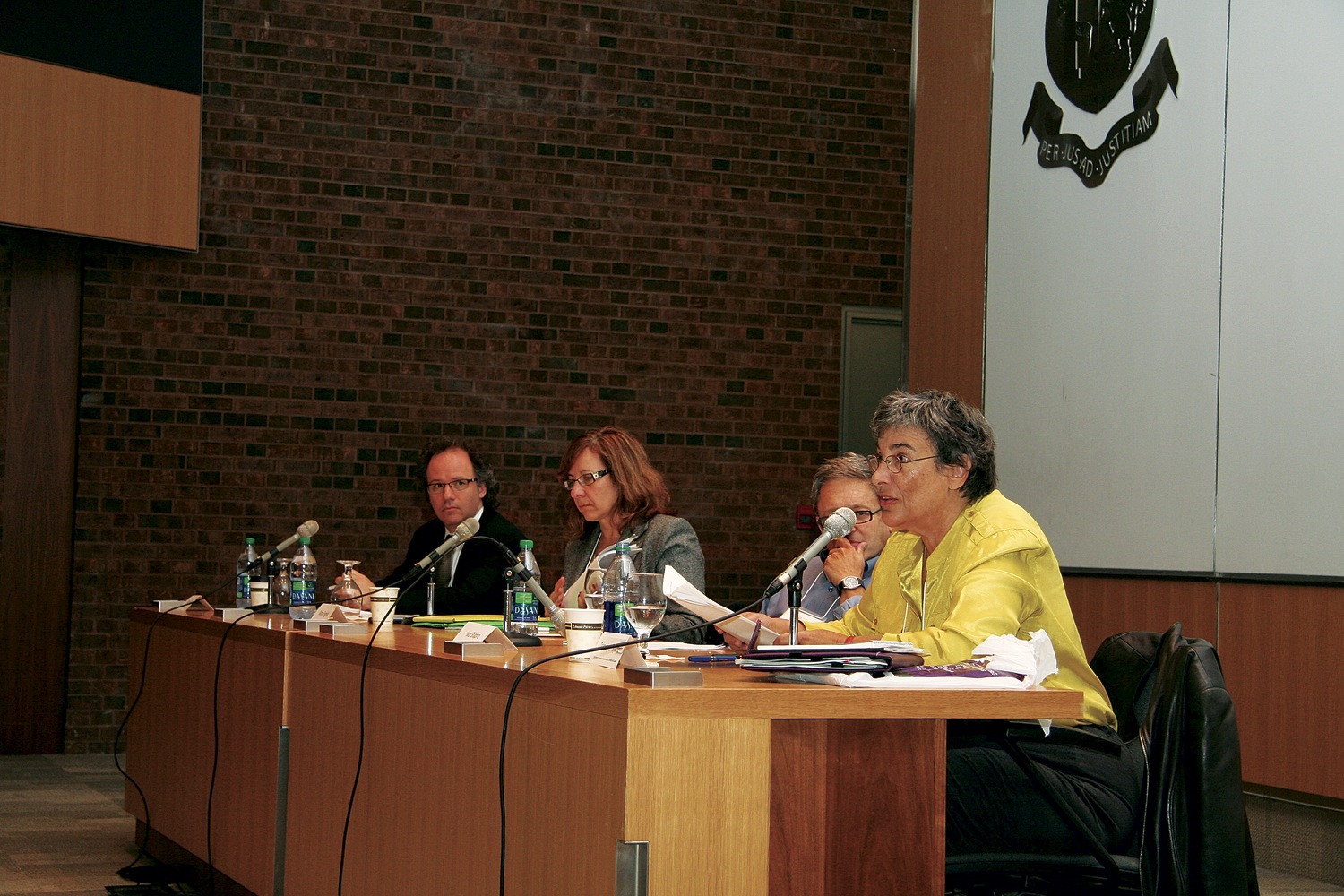Ernest Reid
Science & Technology Editor
Technology and economics are changing what it means to be an investigative journalist in Canada.
Last Friday, the Osgoode Law School, along with the Law Commission of Ontario, hosted a conference on the law and ethics of investigative journalism.
Lorne Sossin, dean of Osgoode Hall, remarked on the need for a conference.

“As we move out of mainstream media into challenging blogospheres and other platforms, the issues become more complex,” he says. “The ability to have a one-size-fits-all answer becomes more difficult.”
It brought together experts in the fields of law and journalism, from newspapers and international law firms, to debate their intersections.
Organizers had planned Mark Jackson, General Consul at Dow Jones & Co., to talk on two panels. Due to the on-going circulation scandal surrounding The Wall Street Journal owned by Dow Jones, Jackson could not attend.
Kathy English, public editor of the Toronto Star, held the first panel on the definition of what journalism is and who gets to practise it.
Torstar Corporation, the parent company of the Toronto Star, was a key sponsor of the conference. Reporters from the CBC and the Globe and Mail also spoke and hosted other panels.
English argued the debates surrounding who is a journalist are heating up in Canada. The lightning rod for this, she says, is a Québec report suggesting professional status for journalists and a code of ethics for those journalists.
“This proposal has been misunderstood and perhaps unjustly maligned,” English commented.
She argues it is not a proposal to licence or regulate journalists. “Its intention is to support public interest investigative reporting,” English says, “which the commission who looked into the media environment in Québec sees at risk.”
Dominique Payette, Université de Laval professor and the author of the controversial report, clarified some issues surrounding the proposal. This is the first time she has spoken on the report in Ontario.
Payette argues the existence of a special status for journalists would allow the public to distinguish journalists from other professionals or amateur communicators.
It would also improve work conditions for journalists, especially independent or non-unionized writers in today’s market.
The market has changed the way news is done and has threatened the existence of public interest news.
Advertisers have lost interest in the type of news crucial for social or political debate, Dr. Payette argues, because “public interest news is the most expensive kind of news to provide.”
Financing investigations no longer comes from advertising as it did under the traditional economic model. “Today, many [papers] avoid the production costs of public interest news,” she argues. The number of players who can produce public interest content is dropping.
In Québec, Payette says, there is practically no more local or regional news.
“Numerous newspapers are becoming commercial travesties outside of new provisions like crosswords, home decor, [or] inserts,” she says.
Employment conditions for journalists have worsened, and this proposal would “improve work conditions for [them], especially independent or non-unionized writers.”
“The media is [increasingly] hiring freelancers, often young and inexperienced journalists, as conditions [become] worse than 20 years ago.”
Due to the marketplace, who becomes a working journalist narrows down. “I don’t want the government to decide,” Payette urges, “But I believe that more than ever, we have to keep this profession open and access to people with a variety of origins and backgrounds.”
Government subsidies and tax breaks are one way of doing that.
“There are great commercial pressures on journalists today,” she points out. “We hope to provide them with some respite.”
Michael Geist responded to her talk during the panel. Geist is the Canada Research Chair in Internet and E-commerce Law at the University of Ottawa. He is also a graduate of Osgoode.
The rest of Canada feels the same pressures of media concentration like Québec, Geist says.
“There’s a foundational shift that’s taken place in the way that news is being gathered and reported […] I’m skeptical that subsidizing a small part of the workforce does little to change that larger foundational shift.”
Geist says tax breaks wouldn’t change the relations between freelancers and papers: “I don’t think you can change the economics of those[…]negotiations through subsidies or through
tax breaks.
For freelancers, “publishers demand all rights on all platforms [and] that isn’t about to change.”
Geist argues that tax breaks for new journalists would hurt the amount and quality of investigative reporting.
Organizations might shift their resources from experienced investigative journalists already on staff towards more inexperienced writers, because it makes economic sense.
“We start seeing pressures shift away from the people who bring years of experience, and it takes years of experience to know how to do [investigations], to hiring people who are new on the job.”
He fears we may enter into a continual cycle. Just as writers become strong effective investigative journalists, “suddenly they may no longer make economic sense because there’s a tax break for someone who comes green to the profession.”
“Trying to foster investigative journalism isn’t about saving or assisting the mainstream media,” Geist says.
He emphasizes the role of online journalism and journalists, where much of new innovation is coming right now.
He cites Global Voices, a project out of Harvard University, that aggregates bloggers from around the world “from many communities where mainstream organizations are closing their foreign bureaus”.
Blogging is where we often get original reporting, because its often from people who are on the ground.
“This isn’t investigative of course,” Geist says, “but it plays a crucial role in our ability to understand and see what is taking place, often in real-time.”
However, there are bloggers that often do engage in original reporting and obtaining original documents.
Crowdsourcing will also play a role in online investigative journalism. Geist argues “much of the analysis that will take place on the Wikileaks cables will ultimately come from individuals.”
There are 240,000 documents that “depend on the public to spend time and go through and identify whether there’s something worth publishing.”
There’s a lot of innovation happening, but Geist emphasizes there is also a lot of risk. Bloggers make up a significant portion of imprisoned journalists around the world. The risks are real for online writers.
With concentrated media ownership, new technologies and a shifting market, it’s unclear what should be done to support the future of journalism. Governments are wrestling whether to intervene and how. Institutions continue to struggle with how to support journalism’s online future.
The recent conference at Osgoode means there’s still much to figure out.


